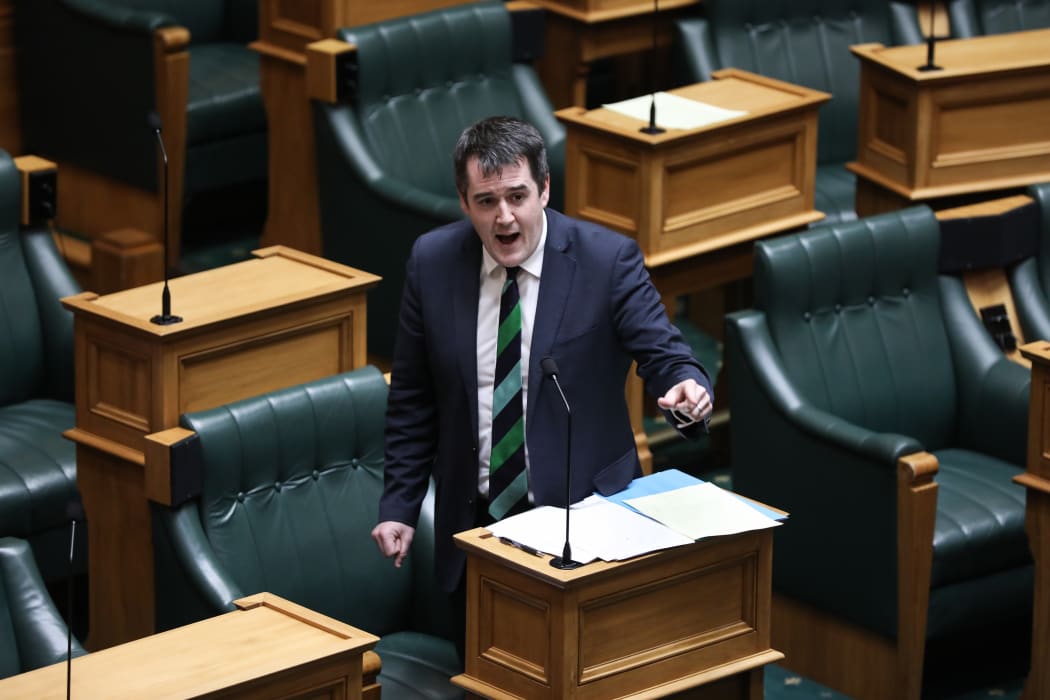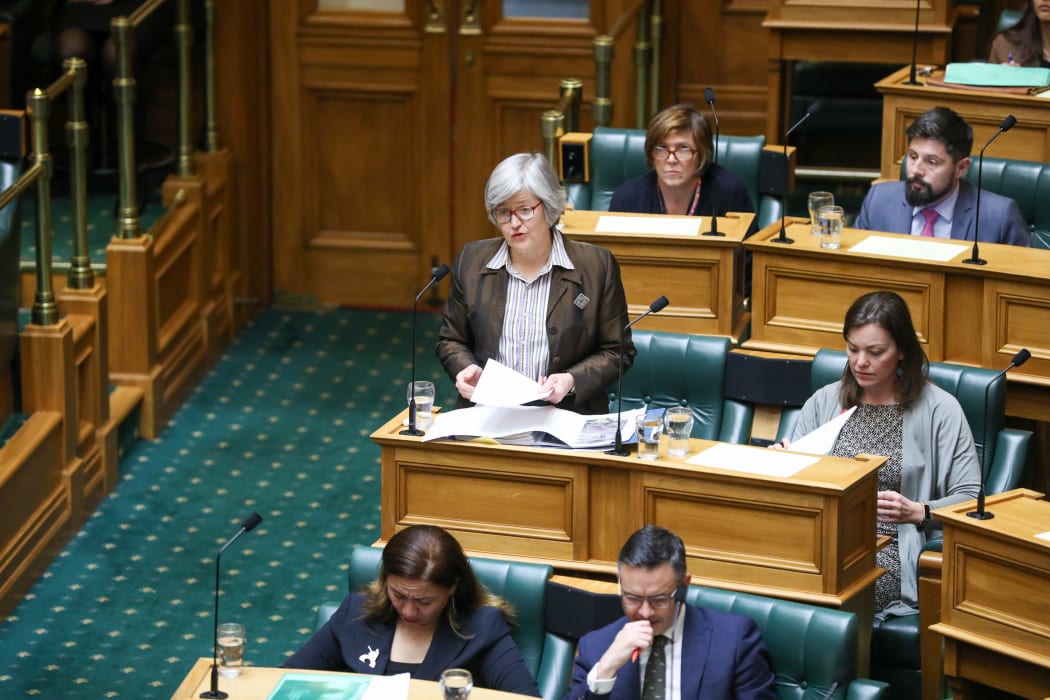This week half the MPs are watching Parliament from home and there’s less to watch. Select Committees have run remotely but the House is limited to 60 MPs and doing essentials only.
Tuesday was over by the dinner break (despite Oral Questions, an urgent debate on the lockdown, and all stages of a financial assistance bill). Wednesday saw just Question Time and the weekly hour of General Debate.
You won’t be surprised at the topic of most of it.

Chris Bishop in the House Photo: ©VNP / Phil Smith
There were some sub-themes though. On Wednesday one was gratitude for essential workers, medical workers, border workers, MIQ workers - another was the current opposition focus - saliva testing. Whether it is better, worse, possible, or useful.
But there were also a few breakouts from the norm. Those changes of topic and pace were something of a welcome relief.
National MP Chris Bishop was focused on Covid-19, but he also apparently sought to deflect attacks for being critical of the Covid-19 response. For the second time in two days he enunciated a defense of the concept of Parliamentary opposition - the importance of being critical.
“So every time we stand up in Question Time as the Opposition and we ask questions… it is in the spirit of continuous improvement. It's in the spirit of trying to make sure the government does the best job they possibly can.
“The whole point of our parliamentary democracy is that the actions of Government and the policies of government and the statements of government are scrutinised, and the reason they're scrutinised is because without scrutiny, governments can do what they like.
“Governments don't necessarily do the right thing, and so the whole point of this House is to make sure that they do. And we'll have a contest of ideas about what the right policies are. We'll have a contest of ideas around whether or not ministers have behaved badly or behaved well, or whether or not they're implementing policy well. That's the whole point. It's like that for education, it's like that for health, it's like that for social services, it's like that for the economy - all of the big issues - and it's no different when it comes to Covid-19.” - Chris Bishop.

Green MP Eugenie Sage answering questions as the Minister of Conservation in 2020 Photo: VNP / Daniela Maoate-Cox
National MP Jacqui Dean took a segue into high country farming, National Party MP Nicola Willis wanted to talk about the rising cost of housing, and Green Party MP Eugenie Sage raised yet another issue - ocean floor trawling.
“We know that these seamounts are biodiversity hot spots. We've got people like Dr Malcolm Clark in the National Institute of Water and Atmospheric Research highlighting that it will take them centuries to recover from bottom trawling," Sage said.
“They are fished by the orange roughy fishery, and that is one of the reasons, with the industry pressuring, that we've seen, I think, such slowness by New Zealand to protect seamounts. Who would want to eat orange roughy? These fish can live for over 200 years - Mr Seymour says he would like to.
"They live for over 200 years. They don't become sexually mature until they're about 20 years. That means they are very slow to breed and their numbers are very slow to recover from overfishing. We need to move to ecosystem-based management, we need to stop bottom trawling on seamounts if we want to have thriving oceans."


